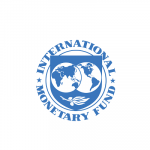Islamabad: Pakistan has received approval from China to move ahead with Asian Development Bank (ADB) financing for the $2 billion upgrade of the Karachi–Rohri railway line, a key section of the Main Line-1 (ML-1) project, Railways Minister Hanif Abbasi said this week.
The minister told Arab News that Pakistan had formally sought China’s consent before proceeding with the ADB arrangement. “We could not have moved forward without asking the Chinese first,” Abbasi said, adding that Beijing remains central to the execution of ML-1 due to its expertise in railway construction.
The Karachi–Rohri section, stretching 500 kilometers, is considered vital for transporting copper and gold from the Reko Diq mine in Balochistan to Karachi’s export hubs. Currently in poor condition, trains on the route run at about 40 km/h. The upgrade will raise speeds to 120 km/h.
Abbasi confirmed that talks with ADB were in the final stages, with feasibility studies expected to conclude by December 2025. Groundbreaking is targeted for mid-2026, although timelines are still being negotiated. He added that financing terms were under discussion but were likely to be “minor” in interest compared to past loans.
Read: CPEC 2.0 to boost IT, energy, agriculture: Bilawal
China originally pledged $6.67 billion for ML-1 in 2016, but progress has been delayed for nearly a decade. In September, Planning Minister Ahsan Iqbal said a consortium of ADB, the Asian Infrastructure Investment Bank (AIIB), and the governments of Pakistan and China would finance the scheme, which covers the 1,726-km colonial-era railway from Karachi to Peshawar.
Abbasi clarified that China had not withdrawn from the project but that Pakistan would continue to seek Beijing’s approval on a section-by-section basis as alternative funding sources were secured. “As we get more funding, we will keep taking permission for more sections,” he said.
The Reko Diq Mining Company (RDMC) has also agreed in principle to provide $390 million in bridge financing for the Rohri–Nokundi stretch, which will transport one million tons of copper annually.
Abbasi acknowledged security challenges in Balochistan but said the state would provide full protection, with the Federal Constabulary tasked to guard mineral trains.
Separately, Pakistan plans to restore regional connectivity by resuming the Islamabad–Tehran–Istanbul freight service in December and advancing the proposed Uzbekistan–Afghanistan–Pakistan railway project, valued at $10 billion.







